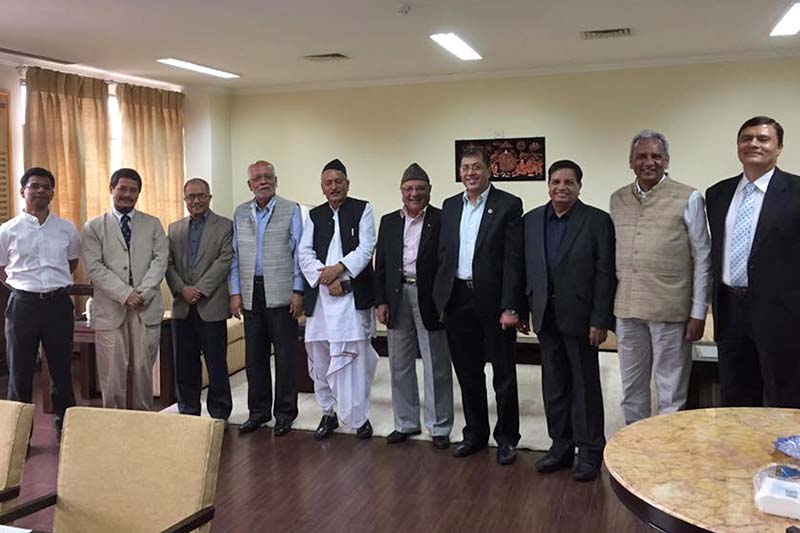EPG agrees to contextualise 1950’s treaty
Kathmandu, October 5
The Eminent Persons Group on Nepal-India Relations today agreed to review and contextualise the Nepal-India Peace and Friendship Treaty of 1950.
During EPG’s second meeting that concluded in New Delhi today, both the sides decided to change the 66-year-old treaty as per the changed bilateral, regional and global context, according to Rajan Bhattarai, an EPG member from Nepal.
“We have agreed to work on reviewing and contextualising the charter as a team,” he told The Himalayan Times from New Delhi over phone. “We will have a point-wise discussion to decide which clause of the treaty is to be kept intact and which needs to be changed.”
With this understanding, the controversial charter will be modified with necessary changes in its contested clauses and points, said an analyst.
Meanwhile, the meeting also dwelt on free transit rights of Nepal— as a landlocked country— via Indian soil and agreed to hold further discussion on the matter in the next EPG meeting, according to Bhattarai.
During the meeting, Nepali side reiterated that Nepal— as a landlocked country— has international rights to have unhindered transit access to third countries via India.
It’s also learnt that both sides have agreed to keep the title of the treaty unchanged.
The treaty, signed by the last Rana prime minister of Nepal, Mohan Shamsher Jung Bahadur Rana, and the then Indian Ambassador to Nepal, Chandreshwar Narain Singh, in Kathmandu on 31 July 1950 — has remained contentious for decades.
Nepal, which had proposed to review it, is concerned that some of its provisions are against the principle of sovereign equality.
The Nepali side is particularly concerned about Article (5) of the treaty, which reads: “The Government of Nepal shall be free to import, from or through the territory of India, arms, ammunition or war-like material and equipment necessary for the security of Nepal. The procedure for giving effect to this arrangement shall be worked out by the two governments acting in consultation.”
Similarly, Point 7 of the treaty, which grants each other’s citizens “the same privileges in the matter of residence, ownership of property, participation in trade and commerce, movement and other privileges of a similar nature,” is also considered controversial.
Provisions of this clause have either not been practised over the years or contradict the other international treaties that came into effect after the signing of the charter.
Bhattarai said the Nepali side spelt out all the controversies surrounding the treaty during the meeting and discussed how it could it be made relevant and contextual.
“When the treaty was signed, the bilateral, regional and global context was different, many laws relating to international trade and diplomacy were yet to be framed,” Bhattarai said.
The EPG-NIR is a joint mechanism of Nepal and India and was set up in February to give necessary suggestions to update all existing bilateral treaties and agreements.
Its first meeting was held in Kathmandu in July. Its next meeting will be held in Kathmandu in January 2017.






